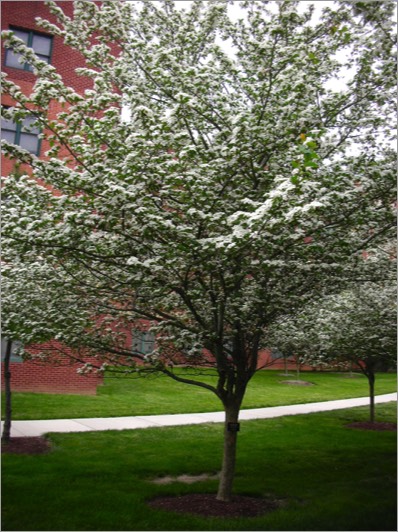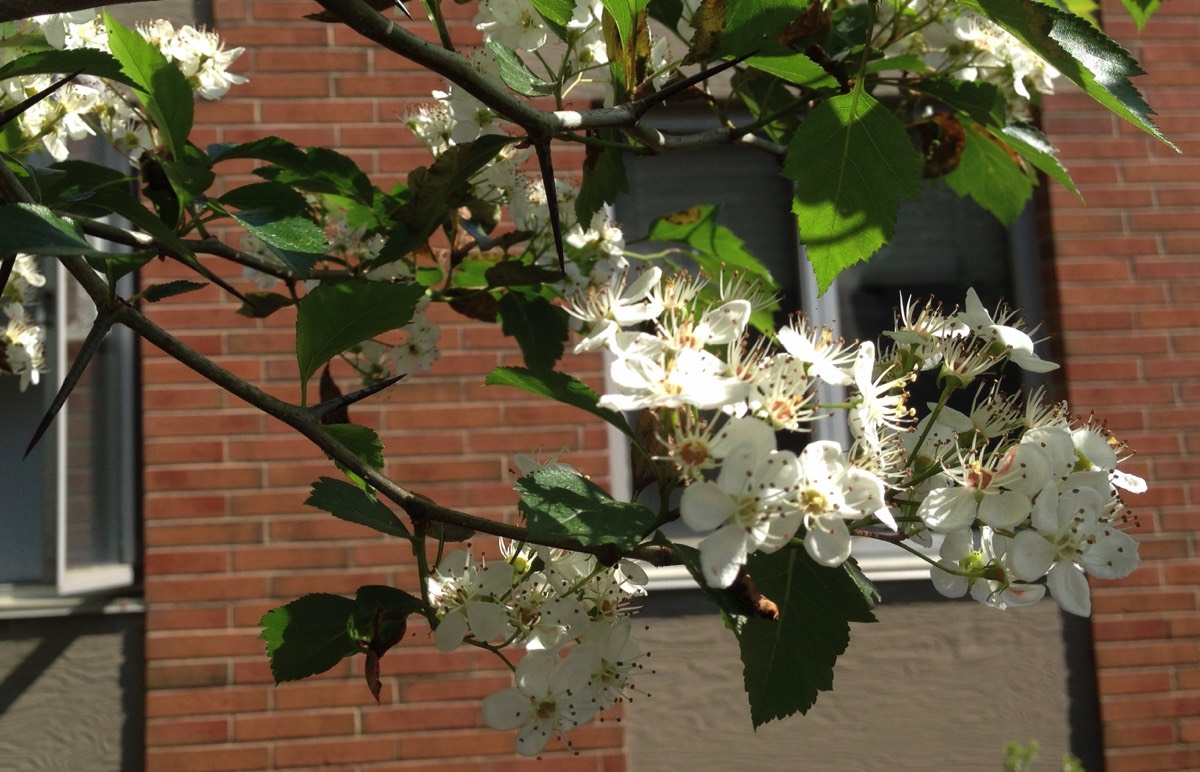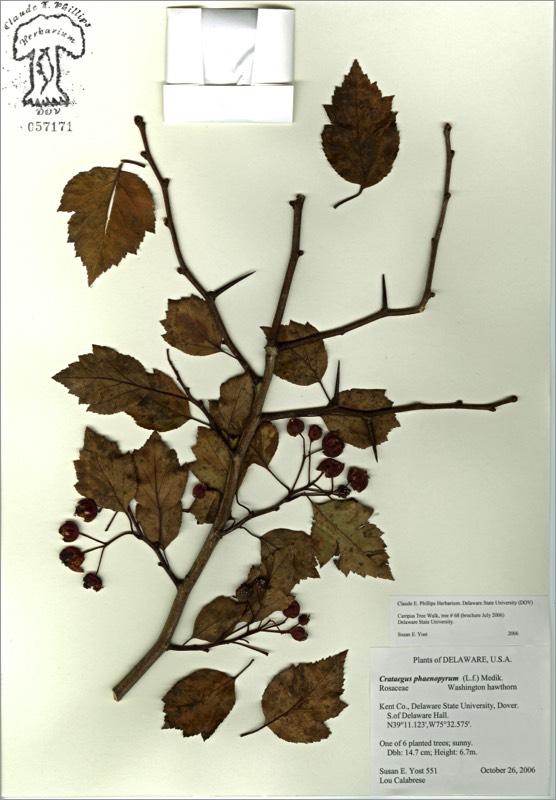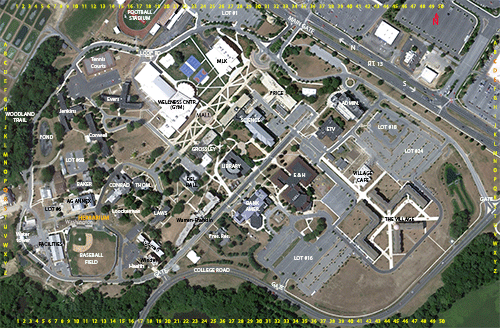**Washington hawthorn


**Crataegus phaenopyrum
WASHINGTON HAWTHORN
Rosaceae
E. North America
Location: map coordinates
Q-11 (south side of Baker Building) N 39°11'9'' W 75°32'44'', and
Q-24 (southeast of Delaware Hall) N 39°11'7'' W 75°32'34''
Planting history: presently unknown.
**Adventive species (not native to Delaware, but native to N. America and now growing wild in Delaware), in Delaware New Castle County piedmont
WASHINGTON HAWTHORN
Rosaceae
E. North America
Location: map coordinates
Q-11 (south side of Baker Building) N 39°11'9'' W 75°32'44'', and
Q-24 (southeast of Delaware Hall) N 39°11'7'' W 75°32'34''
Planting history: presently unknown.
- small deciduous tree
- etymology: Crataegus from Greek kratos = strength (for hard wood); phaenopyrum = appearance of pear
- leaves simple, alternate, toothed, often lobed
- flowers attractive, white
- fruit bright red, attractive; edible, especially in jams, jellies (contain a lot of pectin) and tea, but not especially good raw; also food for birds in winter
- branches with distinctive long thorns
- fruits and flowers used in herbal folk medicine as heart tonic; leaves and flowers used in Germany as treatment for early congestive heart failure
- difficult to identify to species, due to hybridization and genetic changes
**Adventive species (not native to Delaware, but native to N. America and now growing wild in Delaware), in Delaware New Castle County piedmont


There are 2 labeled Washington hawthorn trees.
HIT REFRESH TO START LOCATION GRAPHIC